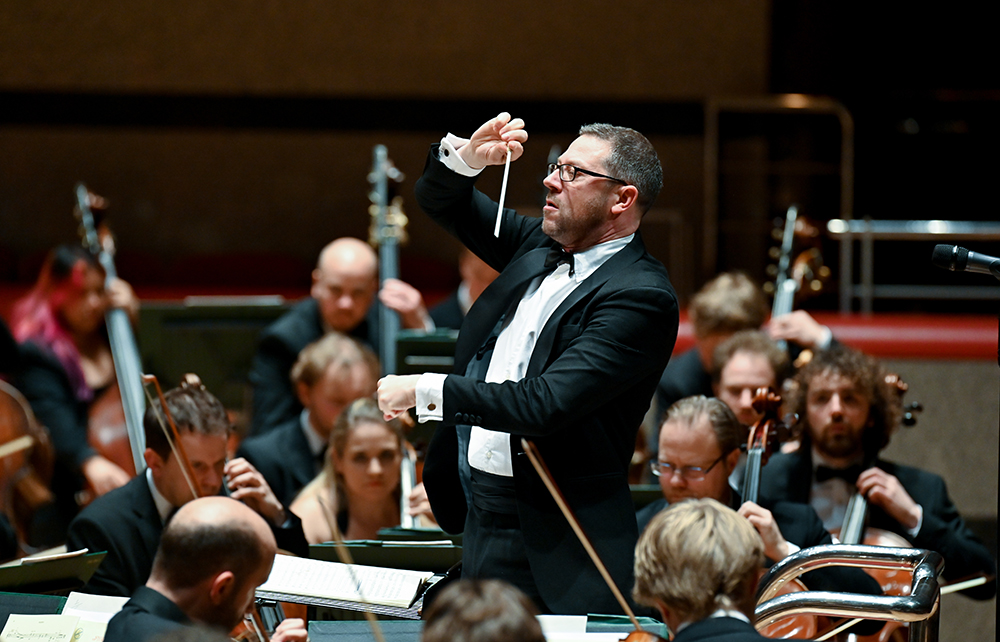Only boring people are bored by Ravel’s Boléro. True, the composer – the slyest of wits – left his share of booby traps for the uncomprehending; take his comment, in a letter to Paul Dukas, that ‘I have written only one masterpiece, Boléro. Unfortunately there is no music in it.’ Yet Ravel was a sublime colourist; a master of the instrumental palette who makes Stravinsky’s orchestration sound coarse by comparison, and Boléro is one long twist of a fabulous kaleidoscope. Even its notorious repetitions are a red herring. Take the full score as a whole and you’ll struggle to find two bars that are identical (there are a couple at the start and a couple near the very end, but that’s basically it). If Boléro makes you yawn, you’re either tired of orchestral sound tout court, or you’re not really listening.
John Wilson and the Sinfonia of London were determined to make us listen. Ravel’s opening dynamic is pianissimo, but Wilson took it several notches below that; the snare-drum barely a heartbeat and the first flute solo as weightless as smoke. A brave move in the boxy acoustic of the Barbican, but it came off, and the silence from the audience was intense. Wilson handpicks his players for a reason: he knows exactly how far he can ask them to go, and so he was able to let colour build upon increasingly psychedelic colour. E flat clarinet over low flutes. Oboe d’amore uncoiling above shrill, pecking bassoons. Sopranino sax squealing juicily to a trumpet tattoo; piccolos and celeste shrouding the horn melody in weird polytonal bioluminescence.
No one gets to play for Wilson unless they share that same, child-like glee in the way this stuff sounds
Wilson is nothing if not a showman, and the programme stated that this was the ‘original ballet version’ of Boléro, from 1928. Two snare-drummers were stationed at opposite sides of the orchestra, to entertaining antiphonal effect – but many orchestras have done something similar. The main change was in the percussion roster: two players with a pair of castanets in each hand, adding a new layer of clickety-clack dazzlement to the multicoloured pile-up at the end of the piece. But with what relish and flair! That’s always the way when Wilson is at the helm of one of his self-assembly super-orchestras. He just loves the feel of a big orchestra, and no one gets to play for him unless they’re capable of sharing and transmitting that same, child-like glee in the way this stuff sounds.
None of which precludes playing of remarkable sophistication and sensitivity. Alice Coote sang Ravel’s Shéhérazade almost as a mini-opera: shooting hooded looks at the stalls as she snarled and caressed her way through the three songs. Earlier we’d heard another original version, this time of An American in Paris. Wilson has gone back to Gershwin’s manuscript score and the result is baggier but also bolder, including touches of harmonic and instrumental experimentation that only a novice orchestrator would dare attempt and only a Gershwin-level genius could actually carry off. The principal trumpet, James Fountain, slathered the central blues melody with hot sauce. Wilson also conducted Henri Dutilleux’s practically unknown 1953 ballet Le Loup. Imagine if one of Les Six had scored Les Parapluies De Cherbourg; and then imagine those diaphanous harmonies and overcast waltzes played by musicians for whom they’re as familiar and as fantastic as Boléro itself.
So three cheers for big-name conductors who explore and who – instead of banking their fame and falling back on the guaranteed wins of Beethoven or Mahler – continue to invest artistic capital in repertoire that no one else will touch. And three cheers more for Sir Simon Rattle, who at 67 continues to bring the wide-eyed devotion of a schoolboy crush to… well, for example, to Schumann’s overture to Genoveva, a piece that never made anyone’s reputation. The love was palpable: the tenderness with which Rattle shaped Schumann’s yearning melodies; the care he took to let the woodwinds shine through (we forget that Rattle was working with period-instrument orchestras back when Karajan was still alive); and the gloriously plump horn calls that heralded the final triumph.
Rattle and the London Symphony Orchestra were at the Barbican two nights before Wilson, and it made a fascinating comparison. Wilson’s string section, modelled on mid-century practice, moves as a single, supple line. For Rattle, weaned in the digital 1980s, it’s all about transparency and layers of sound. Mitsuko Uchida played Schumann’s Piano Concerto, and the LSO made chamber music with her, unaffected and direct. Rachmaninoff’s Third Symphony had a big-band swagger and bite, with only the occasional hint of Rattle’s oldest vice – micromanagement – to inhibit the way the LSO cellos sang the first movement’s glorious second subject. And Rattle finished with an encore – a Slavonic Dance. ‘Dvorak makes everything better,’ he smiled: an artist who – like Wilson – understands that there should never be any such thing as a routine concert.






Comments